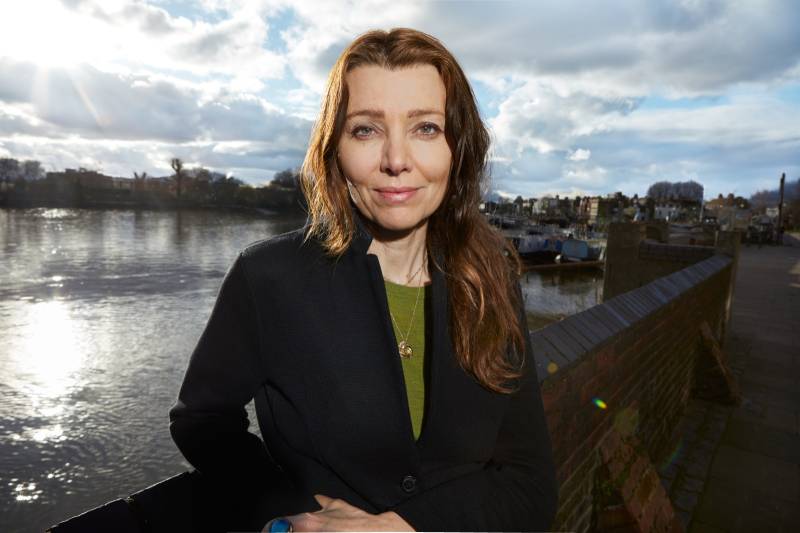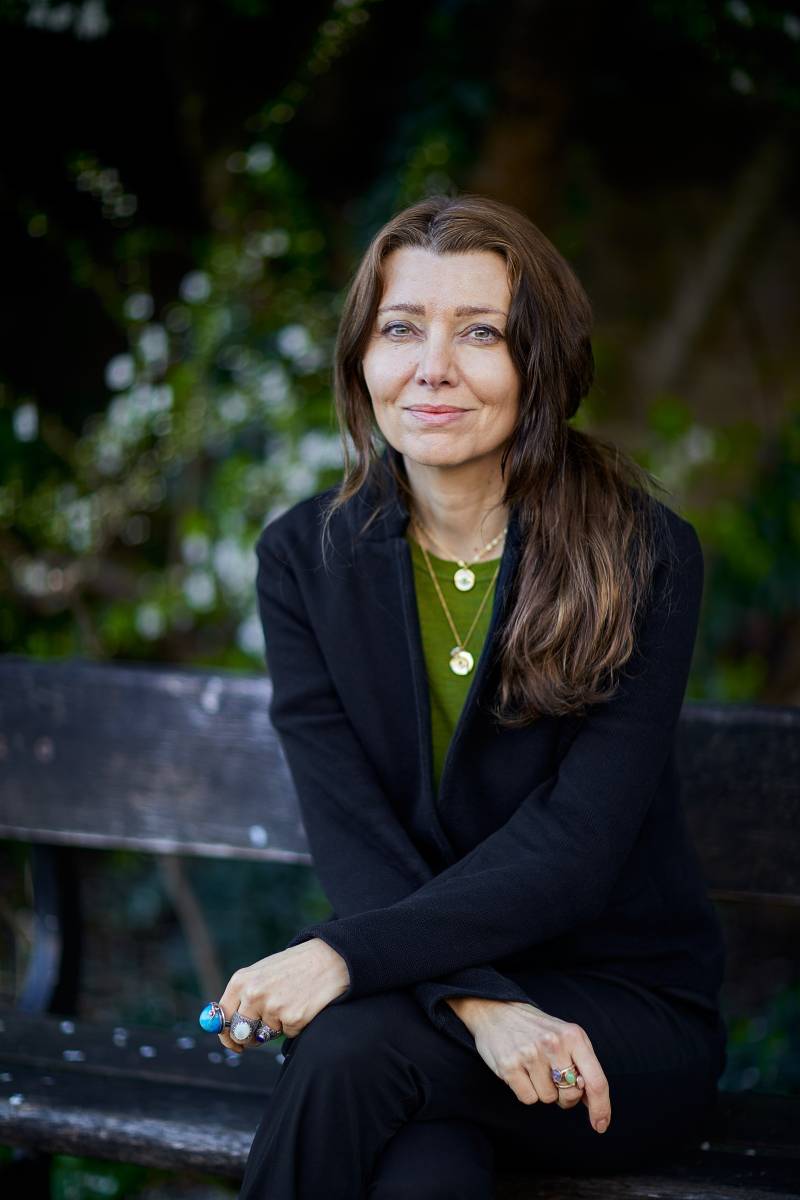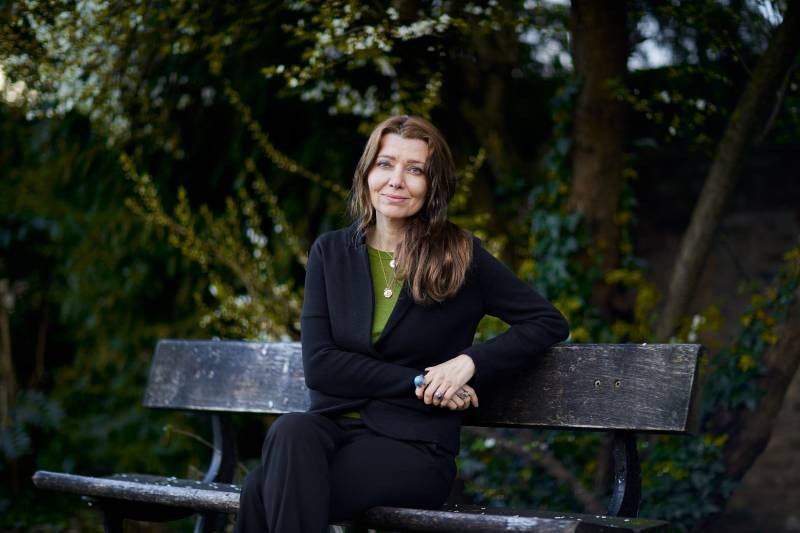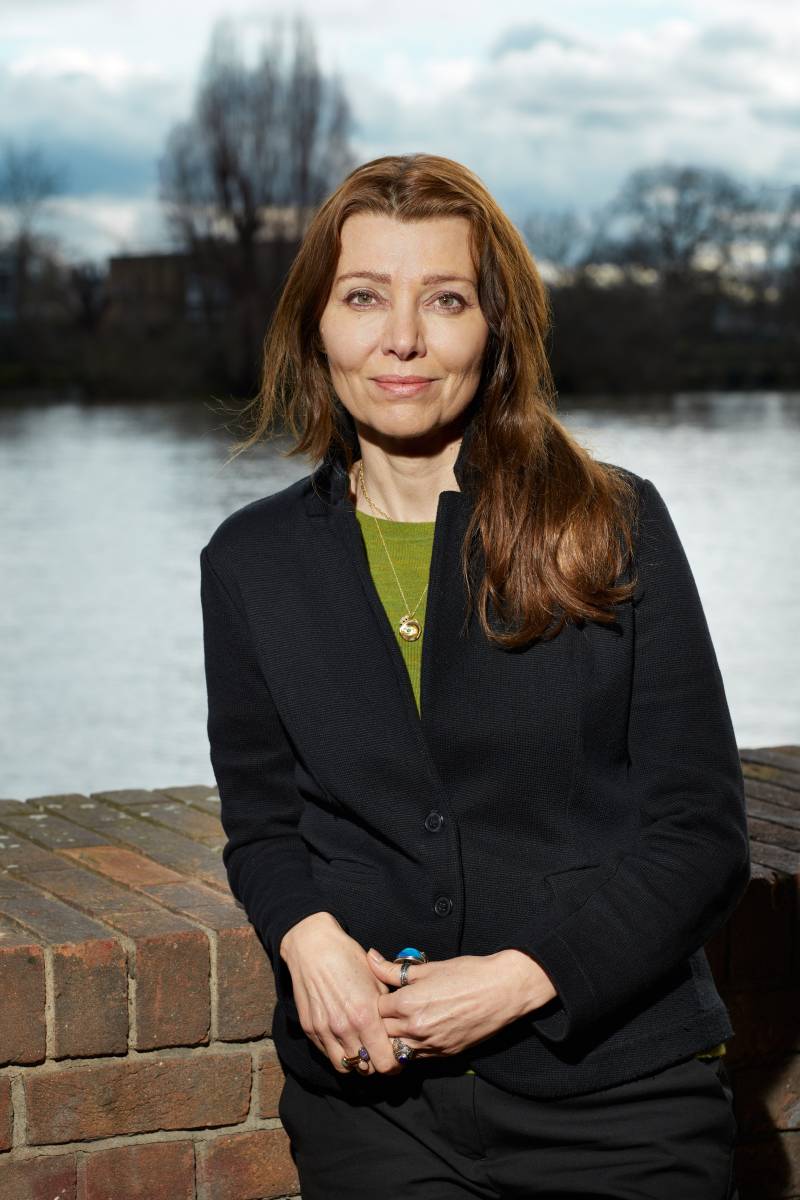STORIES THAT TRANSCEND BOUNDARIES | ELIF SHAFAK | THE POWER OF WORDS TO TRANSFORM

We are delighted to feature award-winning British-Turkish novelist and storyteller Elif Shafak in her first interview with HELLO! Pakistan. A literary icon known for her profound storytelling and deep exploration of themes like love, identity, and cultural dichotomies, Shafak’s work has resonated with readers across the globe. Elif’s narratives serve as a bridge between East and West, bringing together diverse cultural perspectives and fostering a deeper understanding among readers. Her words have transcended borders, creating a bond between Turkey and Pakistan, two nations with rich historical ties and shared cultural values. In this exclusive interview, Shafak discusses her journey as a writer, the transformative power of literature, and her views on feminism and social change. Join us as we delve into the mind of a storyteller who continues to inspire and connect hearts worldwide. Read on…

1. This is your debut feature in our magazine, and we’re honoured to have you. Your journey as an author has been remarkable. Could you share a personal anecdote or experience that has deeply influenced your journey as a writer?
Thank you so much for your kind words and for these beautiful questions. I have been writing stories since my early childhood, but that was not because I was planning to become an author someday in the future. I did not know such a thing was possible. There were no such role models around me. I started writing early in life primarily because I felt very lonely. My need for literature was deeply existential.
‘I would love to come to Pakistan. I was honoured to receive multiple invitations to literary festivals in Karachi and beyond, and hopefully someday soon I will be able to visit’
I was born in Strasbourg, France, but shortly afterwards, my parents separated, and I moved to Ankara, Turkey with my mother. I was an only child raised by a single, working mother, and partly by a traditional, spiritual grandmother. I grew up without seeing my father, even though I discovered later on that he was a good and caring father to his two other children from another marriage. He was completely absent in my life. In many ways, growing up, I felt like “the other.”
When we moved to Spain in my teenage years, I experienced further questions of belonging and displacement. As my mother was working long hours, mine was a lonely childhood. So, my imagination became my friend. It was an unusual upbringing, and books kept me sane. Books gave me a much-needed sense of belonging and connectivity. Today, when I say “books can save us,” I really mean it, because it happened to me.
2. Your work often serves as a bridge between East and West, touching on themes of identity, belonging, and cultural dichotomies. How do you navigate and balance these dual perspectives in your writing?
Literature questions dualities. Politics always shouts that there is “us versus them.” But inside ‘story-land’, inside literature, there is no such thing. There are only human beings. Equal and one. Inside the vast continent called ‘story-land’, “the Other” is my brother, “the Other” is my sister. Literature can rehumanise those who have been dehumanised. Literature connects beyond borders and boxes. While demagogues wish to build higher walls to separate human beings into camps of hatred and animosity, writers and poets want to build bridges.
‘My new novel, ‘There Are Rivers in the Sky’, is coming out this August. It is the story of three fictional characters, two rivers (the River Thames and the River Tigris), and one ancient poem—the Epic of Gilgamesh’
For me, “East” and “West” are not mutually exclusive categories that refuse to mix, like water and olive oil. Anyone who spends time in Istanbul will see that East and West mix all the time. Throughout history, many travellers, pilgrims, scholars, and artists have made multiple journeys back and forth. Stories and ideas have travelled. As human beings, we are all connected. Our stories, our destinies are far more deeply connected than we realise. The novel is a fascinating literary form that shows these connections like nothing else does.
3. Many of your novels draw from rich historical and cultural contexts. What inspires you most when you are developing a new story, and how do you incorporate historical elements into your narratives?
I love interdisciplinary knowledge. This means I am open to learning from multiple disciplines. I read extensively on political philosophy, cultural history, and neuroscience, but I also love reading cookbooks, graphic novels, and folk tales. I would like my writing, to the best of my ability, to bridge written culture and oral culture.

I am interested in history. Most of the history that we learn at school in Turkey is “his-story”—history that is recorded, archived, and transmitted is usually about wars, conflict, and empires; it is the stories of men in positions of authority and power. But where are the stories of women? Since history books are generally silent on this, we writers need to become linguistic and literary archaeologists. We need to dig deep to find all those untold and silenced stories.
As a writer, I am not only interested in stories but also in silences. It is important to me to give more voice to the voiceless, to bring the periphery to the centre, and to remember the forgotten stories of women and minorities.
4. You’ve mentioned that storytelling has the power to transcend boundaries and bring people together. Can you share a moment or experience when you witnessed this impact firsthand?
It is very precious to me to see how mesmerisingly diverse my readers are. They come from all backgrounds and various age groups. Sometimes mothers and daughters come to my events together, as well as husbands and wives and whole families. In my book signings, there are always incredibly warm and emotional moments. People wait in the queue not for my silly signature and terrible handwriting, but because they want to tell me how a book touched their heart and what the story meant to them. I am so humbled and honoured by these beautiful encounters.
Sometimes people from different ethnicities become friends while waiting in the queue. People tell me how they had been biased towards each other before the book. I have readers in Turkey, for instance, who were raised in extremely conservative or ultra-nationalist households, where they have heard all kinds of stereotypes and negativities about minorities and other cultures. But then some of these readers come and say, “I have read your book and it changed my way of thinking and it made me see my own prejudices because the character that I identified with the most, the character that I loved the most, was actually someone I never thought I would even befriend because of their background.” Literature is the art of empathy.

5. ‘The Forty Rules of Love’ beautifully intertwines themes of love and Sufism. What drew you to explore these themes, and what do you hope readers take away from this book?
Ancient mystics of all religions and backgrounds shared a similar quest for love, harmony, and unity. I have always found this interesting. How is it possible that people who have never met in real life, people from different continents and centuries, have been shaped by a similar search for a deeper form of love and connection? I am intrigued by the wisdom of ancient philosophers, heterodox mystics, and maverick poets. Both Rumi and Shams are dear to my heart.
I am a novelist, and I do not believe in “heroes.” So it was important for me to write about Shams and Rumi without turning them into heroes. That is how I came up with a more layered narrative that appreciates the dance of faith and doubt. It is interesting that Rumi and Shams were very different personalities. One was made of water, the other of fire. But they respected and appreciated each other, and that love changed them profoundly. Love always transforms us. If we are the same person before and after love, it means we have not loved enough.
Rumi’s poetry speaks to us today beyond borders of history and geography. It has been more than 800 years, but his voice is still relevant. His poetry, in that sense, is placeless and timeless. It is universal.
6. You are a vocal advocate for women’s rights and feminism. How do these themes manifest in your work, and what changes do you hope to see in the future concerning gender equality?
Not that long ago, in the late 1990s and early 2000s, there was an arrogant duality reiterated in some corners of the media and academia. People assumed back then that the world was divided into “solid lands” and “liquid lands.” The West was supposed to be safe, steady, and solid, while “the Rest” was regarded as unstable, unsteady, and unsettled. The same people assumed that women’s rights were an issue in the “liquid lands” but not in the “solid lands.” The Western world was seen as beyond concerns about women’s rights, democracy, freedom of speech, or human rights.
Fast forward to today, we know that there is no such thing as solid lands versus liquid lands; we are all living through liquid times. This means we need to worry about women’s rights all around the world, from the USA to Australia to Afghanistan. True, in some parts of the world, the problem is more acute and urgent than in others, but feminism is needed everywhere. For me, feminism means believing in equality, dignity, and connectivity. Equality for all. Dignity for all.
‘As a writer, I am not only interested in stories but also in silences. It is important to me to give more voice to the voiceless, to bring the periphery to the centre, and to remember the forgotten stories of women and minorities’
A true feminist knows that patriarchy is a system of injustices and inequalities. It is not just about glass ceilings but also about glass walls. Patriarchy oppresses and hurts women and girls, true, but it also makes men and boys unhappy and bruised. Only one form of masculinity is imposed upon young boys. If they do not fit into that box, they can be shunned and belittled. Boys are not allowed to show any emotions because emotions are treated as a sign of weakness. This is utter nonsense. As human beings, men and women, we are all emotional creatures. Feelings are not a sign of weakness.

My point is, in a patriarchy, men, especially young creative men, cannot be happy either. So we must work together to dismantle the inequalities that patriarchy imposes on us.
7. Your books have resonated with readers worldwide, including a significant following in Pakistan. What message would you like to share with your Pakistani readers?
I receive incredibly touching, heartwarming messages from readers in Pakistan. I am very grateful. You know, in Turkey, a book, a novel, is not a personal individual item. If a reader enjoys a novel, if they love a book, they pass it on. They give it to their friend, and that friend shares it with her aunt, and the aunt shares it with her neighbour, and so on. This word-of-mouth, this sharing of books, is very precious. I have a feeling it is the same in Pakistan, that readers lovingly share books, and I love this.
8. Considering your popularity in Pakistan, do you have any plans to visit the country? If so, what are you most looking forward to experiencing there?
I would love to come to Pakistan. I was honoured to receive multiple invitations to literary festivals in Karachi and beyond, and hopefully someday soon I will be able to visit. I feel emotionally close and connected to the people, the culture, the music, and the food. Coming from Turkey, there are so many similarities between our cultures.
9. Can you give us a glimpse into any upcoming books or themes you are excited to explore in your future works?
My new novel, ‘There Are Rivers in the Sky’, is coming out this August. It is the story of three fictional characters, two rivers (the River Thames and the River Tigris), and one ancient poem—the Epic of Gilgamesh. It is a novel that spans centuries, continents, and cultures. Everything in this story is connected through a small drop of water. I have built an entire novel inside a tiny little raindrop. I am so looking forward to sharing this book with readers in Pakistan.
10. In your opinion, how can literature contribute to social change and the betterment of society in these challenging times?
I make a distinction between information, knowledge, and wisdom. In today’s world, there is way too much information—more than we can ever process—but very little knowledge and even less wisdom. Too much information gives us the illusion that we know something about everything. We have forgotten to say, “I don’t know.” We don’t say, “I don’t know” anymore. But that was the starting point for philosophers and mystics. That humble beginning was a great way of starting the journey towards knowledge.
We do not need snippets of information that we do not even process. What we need is proper knowledge. Information is fast consumption, but knowledge requires us to slow down. It requires books, book festivals, and nuanced conversations. Let’s spend less time with information and more time on knowledge. And ultimately, let’s seek wisdom, which requires bringing the mind and the heart together. It requires emotional intelligence. This is where literature can help us. In a world of fast consumption, superficial information, greed, apathy, and hostility, literature is the balm that gently connects us and teaches us both humility and compassion.
INTERVIEW: SAFA ADNAN
PHOTOGRAPHY: FERHAT ELIK
